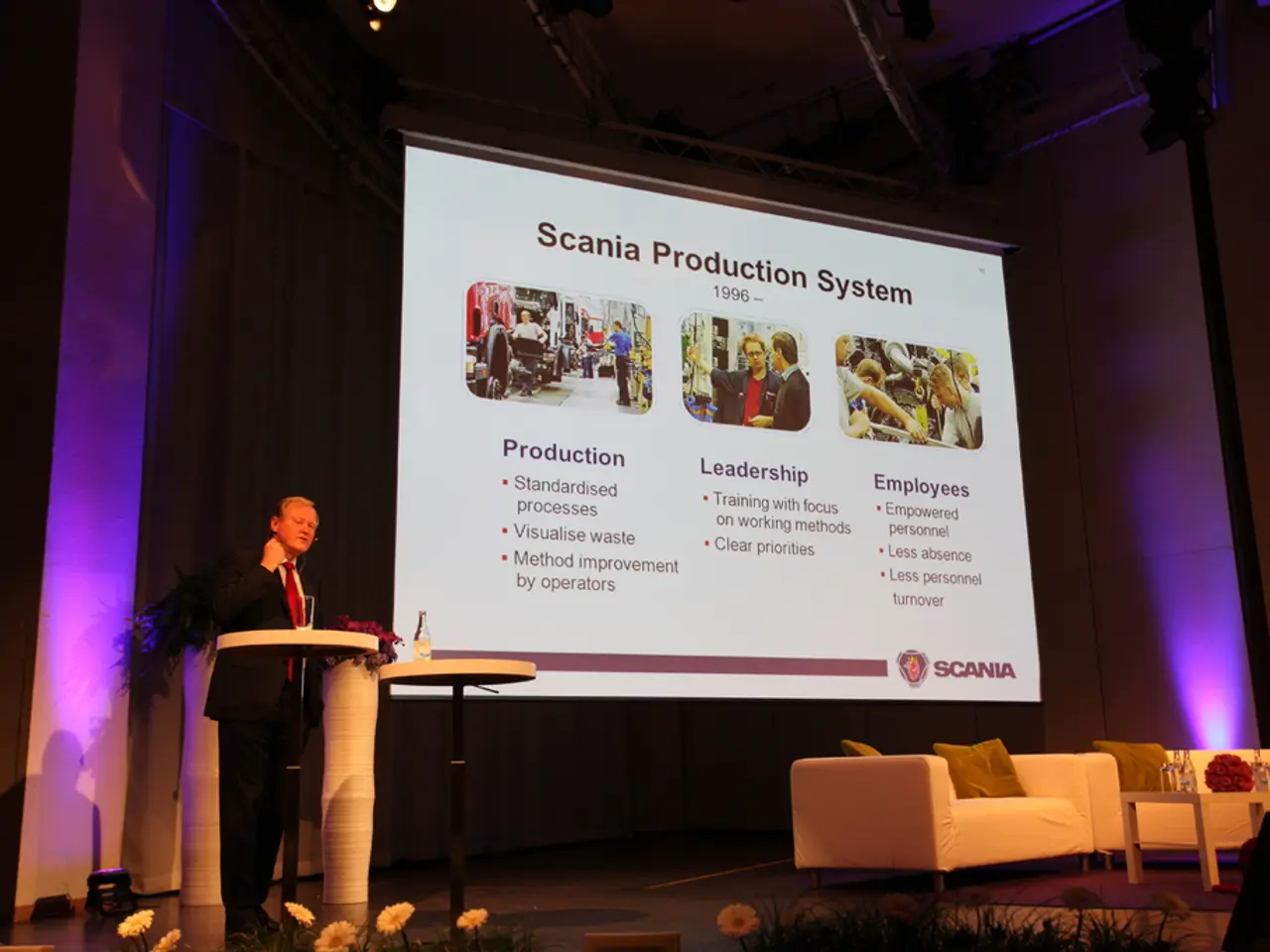Contemplating a Purchase of Rocket Lab Shares, Given the Current Price Dip Under $40?
In the dynamic world of space exploration, Rocket Lab has been making headlines with its Electron rocket launches and ambitious plans for the larger Neutron rocket. However, the company's stock has been a subject of debate among investors due to its high valuation and unproven markets.
Currently trading at a price-to-sales (P/S) ratio of 36.6, Rocket Lab's stock is widely perceived as overvalued, with investors paying a premium relative to its revenue. This is in stark contrast to the S&P 500 average P/S ratio of 3.1, indicating a significant disparity between Rocket Lab's valuation and its financial fundamentals.
Despite a successful year that saw a nearly 700% stock price surge, successful launches of the Electron rocket, and new contracts related to the Neutron rocket, Rocket Lab's financial metrics show moderate operational and financial strength. The Electron rocket's payload capacity is limited to 300 kg, and while the Neutron rocket promises a much larger capacity of up to 13,000 kg, it is not yet operational, leaving significant execution risks.
Analysts, however, remain optimistic about Rocket Lab's growth trajectory. Revenue is expected to nearly triple from $436 million in 2024 to $1.2 billion by 2027, and adjusted EBITDA is expected to turn positive. KeyBanc recently raised its price target to $40, suggesting a roughly 16.5% upside potential. Forecasts over the next 5-10 years suggest substantial appreciation if the company meets growth expectations.
For long-term investors willing to bet on Rocket Lab's successful ramp-up and market expansion, the stock could still offer upside, albeit with significant volatility and risk given the current high valuation and unproven markets. On the other hand, risk-averse investors or those seeking less volatility and more established revenue streams may want to exercise caution, as Rocket Lab's elevated valuation relative to its financial fundamentals suggests a potential for a valuation reset or further proof of consistent profitability before adding it to a portfolio.
In summary, Rocket Lab's stock is priced for substantial growth, but given its high P/S ratio and still-developing markets, it carries considerable risk. Whether it is too late to buy depends on individual risk tolerance and belief in the company’s execution and market potential.
Rocket Lab has built and bought capabilities in the space systems sector, including satellites and solar arrays, and the Neutron rocket will have a much higher payload capability than the Electron, potentially increasing revenue per launch. The company is also developing the Neutron rocket, which will directly compete with SpaceX in size and capabilities. However, the Neutron rocket has not yet performed a test launch, adding another layer of uncertainty to Rocket Lab's business plan.
With a cash reserve of just over $500 million, Rocket Lab is currently burning $177 million in annual free cash flow. The company's total revenue over the last 12 months was $466 million, and it has a backlog of many more Electron rockets waiting to be launched. Despite these figures, the stock's high valuation has led some to advise against investing in Rocket Lab at this time.
In conclusion, while Rocket Lab's potential future revenue could be in the billions, its current high valuation and unproven markets make it a risky investment for many. Investors should carefully consider their risk tolerance and belief in the company’s execution and market potential before deciding to add Rocket Lab to their portfolios.
- In the realm of space exploration and technology, Rocket Lab's investments in space systems, such as satellites and solar arrays, and the development of the Neutron rocket, aim to increase revenue per launch.
- The Neutron rocket, intended to compete with SpaceX in size and capabilities, adds a layer of uncertainty to Rocket Lab's business plan, as it has not yet performed a test launch.
- The financial science reveals that Rocket Lab's stock, despite a cash reserve of over $500 million, is burning $177 million in annual free cash flow, as indicated by its current high valuation and unproven markets.
- With a backlog of many more Electron rockets waiting to be launched, investors might find the potential for Rocket Lab's future revenue in the billions, but the present high valuation and unproven markets position it as a risky investment for many.




